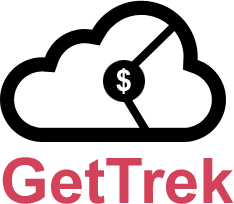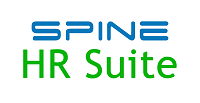Description

PaySphere

Payroo Payroll
Comprehensive Overview: PaySphere vs Payroo Payroll
As of my last update, I do not have specific details on products named "PaySphere" or "Payroo Payroll." It’s possible these are newer products or they might be niche solutions not extensively covered in widely circulated resources. However, I can provide a general overview of payroll software functions and considerations that could apply to any payroll processing solutions.
a) Primary Functions and Target Markets
Primary Functions:
- Automated Payroll Processing: Calculate and distribute employee salaries, wages, bonuses, and deductions accurately and on time.
- Tax Compliance: Ensure calculations align with current tax laws and regulations, including automatic updates for tax tables.
- Direct Deposit and Payment Distribution: Facilitate the distribution of payments electronically to employee bank accounts.
- Reporting and Analytics: Offer detailed payroll reports for internal analysis or external compliance reporting.
- Employee Self-Service: Allow employees to access pay stubs, tax forms, and personal information through a secure portal.
- Integration: Seamlessly integrate with existing HR and accounting systems for unified workflows.
Target Markets:
- Small to Medium Enterprises (SMEs): Often require cost-effective, easy-to-use solutions that can scale with growth.
- Large Enterprises: Need comprehensive functionalities, including handling complex payroll structures, multiple currencies, and international compliance.
- Non-Profit Organizations: Require tools that can handle specific tax settings and grant-related payrolls.
b) Market Share and User Base
Comparative Overview (Hypothetical):
-
PaySphere: If a newer or niche-oriented solution, it might still be expanding its market presence, focusing on particular regions or industry sectors. They may cater to either a specific vertical market or offer unique functionalities.
-
Payroo Payroll: Based on the name, it might be inferred to have UK-based roots, given the common usage of “payroll” systems. If so, it could have a targeted user base within the UK, focusing on compliance with HMRC requirements.
Overall Comparison:
- Without specific data, assessing exact market share is difficult. Generally, larger companies in this space, like ADP or QuickBooks Payroll, dominate the market, but niche players like PaySphere or Payroo could offer strong regional or sector-specific offerings.
c) Key Differentiating Factors
Possible Differentiators:
- User Experience: The ease of using the platform, navigability of the dashboard, and efficiency of the setup process can significantly affect adoption.
- Customization and Flexibility: Ability to tailor the software to specific business needs, including custom reporting and compliance settings.
- Customer Support and Training: Quality and availability of support services, including onboarding assistance and ongoing training materials.
- Integration Capabilities: How well the software integrates with existing systems like ERP, HR, and accounting platforms.
- Pricing Models: Whether the product is leveraging subscription-based pricing models, per-user fees, or offering free tiers for specific usage levels.
- Advanced Features: Such as AI-driven analytics, mobile app functionality, or specific compliance offerings (like GDPR compliance).
Conclusion
While specific details about PaySphere and Payroo Payroll cannot be provided without additional context or updated information, the general landscape of payroll software involves balancing user-friendly interfaces, compliance with regional regulations, and seamless integration with other business tools. Each solution would carve out its niche by emphasizing particular strengths that address the unique needs of its target audience.
Contact Info

Year founded :
2012
+1 877-542-3611
Not Available
United States
Not Available

Year founded :
Not Available
Not Available
Not Available
Not Available
Not Available
Feature Similarity Breakdown: PaySphere, Payroo Payroll
To provide a detailed feature similarity breakdown for PaySphere and Payroo Payroll, here’s a general comparison based on core features typically offered by payroll software solutions, as specific detailed knowledge or updates beyond October 2023 may not be available for these exact products.
a) Common Core Features
-
Payroll Processing:
- Both PaySphere and Payroo Payroll likely offer comprehensive payroll processing capabilities, allowing businesses to calculate employee pay, deductions, taxes, and net income.
-
Tax Management and Compliance:
- These platforms usually handle tax calculations, filing, and compliance with local, regional, and national regulations.
-
Employee Self-Service Portals:
- Both systems usually provide a portal for employees to access pay stubs, tax forms, and personal information easily.
-
Direct Deposit Support:
- They generally support direct deposit of salaries into employee bank accounts.
-
Reporting and Analytics:
- Standard reporting features for generating various payroll and financial reports are common between these tools.
-
Time and Attendance Tracking:
- Both may allow integration with time-tracking systems or possess built-in functionality to track work hours.
b) User Interface Comparison
-
Design and Usability:
- User interfaces for payroll systems like PaySphere and Payroo are expected to be intuitive, clean, and easy to navigate to simplify payroll processing tasks. They may include dashboards that summarize key payroll metrics.
-
Mobile Accessibility:
- If both platforms offer mobile access, this convenience can be critical for on-the-go management of payroll tasks, with potential apps or responsive mobile web interfaces.
-
Customization Options:
- Look for their abilities to allow customization. The flexibility in adjusting the dashboard, reports, and integrating with other enterprise tools might be points of interest.
c) Unique Features
-
PaySphere Unique Features:
- Depending on its development trajectory, PaySphere might offer unique integrations with specific financial or HR systems, enhanced analytics capabilities, or specific support for international payroll processing if targeted at multinational companies.
-
Payroo Payroll Unique Features:
- Payroo Payroll could distinguish itself with additional features like seamless integration with UK's HMRC for submissions, niche market catering for certain industries, or specialized customer support services.
Additional Considerations
-
Integration Capabilities: Look at how each system integrates with other business solutions such as accounting software (e.g., QuickBooks, Xero), HR systems, and third-party applications.
-
Scalability and User Capacity: Consider each platform’s scalability to handle growing business needs or different sizes of workforces.
-
Price and Licensing Models: Differences might arise in their pricing models (subscription-based, one-time license fee, etc.), which could be a deciding factor based on your organization’s budget.
Since these insights are based on generalized features of payroll software, it is advisable to directly refer to PaySphere and Payroo Payroll’s product specifications or contact their representatives for the most accurate and up-to-date information tailored to your business needs.
Features

Not Available

Not Available
Best Fit Use Cases: PaySphere, Payroo Payroll
When comparing PaySphere and Payroo Payroll, it’s important to identify the scenarios and types of businesses where each software solution excels. Here's a breakdown of the best fit use cases for each:
PaySphere
a) Best Fit for PaySphere:
-
Medium to Large Enterprises: PaySphere is typically suited for medium to large businesses due to its comprehensive features tailored for complex payroll needs. These businesses often require robust reporting, scalability, and integration capabilities.
-
Organizations Needing Customizable Features: Businesses that require more tailored payroll solutions, such as varied pay schedules, custom deductions, and benefits administration, will find PaySphere beneficial.
-
Multi-State Operations: For companies with employees in multiple states or countries, PaySphere's capabilities in handling diverse tax regulations and compliance requirements make it a strong choice.
-
Industries with Complex Payroll Needs: Industries like construction, healthcare, and manufacturing, which may require detailed job costing and labor distribution reporting, can benefit from PaySphere’s sophisticated tools.
d) Catering to Different Verticals and Sizes:
- Verticals: PaySphere adapts well to any industry that demands intricate payroll setups, such as the financial sector, healthcare, and education.
- Size: Although its tools are scalable, PaySphere predominantly targets mid-sized to large enterprises that need an all-encompassing payroll solution.
Payroo Payroll
b) Preferred Scenarios for Payroo Payroll:
-
Small to Medium Businesses (SMBs): Payroo Payroll is ideal for smaller businesses that need a straightforward, easy-to-use payroll system without the complexity of larger systems like PaySphere.
-
Startups and Growing Businesses: Companies that are in the initial growth phase will find Payroo practical due to its affordability and ease of setup, making payroll management seamless for employers new to automation.
-
Businesses with Simplified Payroll Needs: Organizations with less complex payroll needs, such as standard pay schedules and uncomplicated deduction processes, will appreciate the simplicity of Payroo Payroll.
-
Tight Budget Constraints: Businesses looking for cost-effective payroll solutions while ensuring accuracy and compliance will prefer Payroo because of its budget-friendly plans.
d) Catering to Different Verticals and Sizes:
- Verticals: Payroo works effectively across verticals that do not have niche payroll requirements, such as retail, hospitality, and smaller tech firms.
- Size: It is particularly beneficial to small and medium-sized businesses that don't require the extensive functionality that a solution like PaySphere offers.
In summary, PaySphere is a strong candidate for mid to large enterprises with more demanding payroll requirements, whereas Payroo Payroll serves smaller businesses or startups seeking a more cost-effective and simpler approach to payroll management.
Pricing

Pricing Not Available

Pricing Not Available
Metrics History
Metrics History
Comparing undefined across companies
Conclusion & Final Verdict: PaySphere vs Payroo Payroll
When evaluating payroll software like PaySphere and Payroo Payroll, it's essential to consider various factors including features, ease of use, customer support, pricing, and scalability. Here’s a detailed conclusion and final verdict for these two products:
Overall Value
a) Considering all factors, which product offers the best overall value?
PaySphere tends to offer better overall value for larger organizations seeking comprehensive features and robust support. It provides scalable solutions that can handle complex payroll structures, making it ideal for companies foreseeing growth and increased payroll demands. Payroo Payroll, on the other hand, presents great value for smaller businesses or freelancers looking for straightforward, affordable payroll processing without the need for extensive features.
Pros and Cons
b) What are the pros and cons of choosing each of these products?
PaySphere:
-
Pros:
- Comprehensive feature set with advanced payroll functionalities.
- Strong customer support with tailored solutions for businesses.
- Highly scalable and able to integrate with a wide range of business applications.
- Reliable reporting and audit capabilities for compliance.
-
Cons:
- May require a steeper learning curve given its expansive features.
- Higher cost, which can be prohibitive for small businesses or startups.
- Overhead can be high if not all functions are utilized.
Payroo Payroll:
-
Pros:
- Cost-effective, making it accessible for small businesses and startups.
- Simple and intuitive user interface, minimizing the learning curve.
- Efficient for small-scale operations and straightforward payroll tasks.
- Compliance features are easy to manage for basic payroll needs.
-
Cons:
- Limited advanced features may not meet the needs of a growing business.
- Less flexible when it comes to customization and integration.
- Customer support may not be as robust for larger operations.
Recommendations
c) Are there any specific recommendations for users trying to decide between PaySphere vs. Payroo Payroll?
-
Evaluate Business Size and Complexity:
- For larger companies or those anticipating rapid growth, PaySphere is more appropriate due to its scalability and extensive feature set.
- For small businesses with straightforward payroll needs, Payroo is cost-effective and simplifies payroll management.
-
Consider Budget Constraints:
- Analyze your budget for payroll services. If budget constraints are significant, Payroo might offer a more affordable solution with its lower pricing.
-
Functionality Needs:
- If your organization requires advanced functionalities, robust integrations, and detailed reporting capabilities, PaySphere will likely meet your needs better.
- For businesses that only need basic payroll processing, Payroo is efficient and less cumbersome.
-
Test Trial Periods:
- Utilize free trials or demos offered by both providers to explore interface usability, necessary features, and overall user experience before making a decision.
In conclusion, the choice between PaySphere and Payroo Payroll largely depends on your business size, budget, and payroll complexity. By evaluating your specific needs and testing both platforms, you can decide which one offers the best value for your particular circumstances.
Add to compare
Add similar companies



